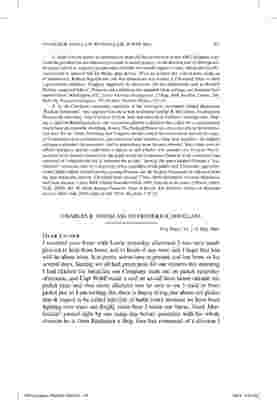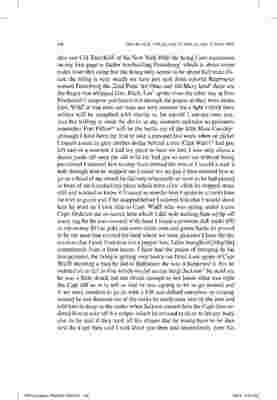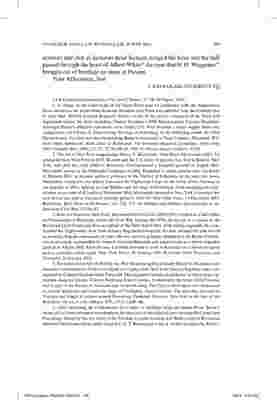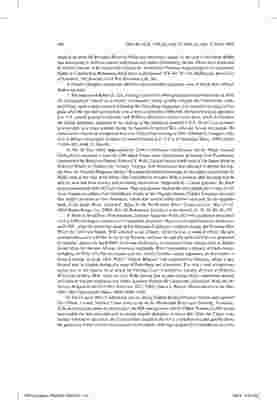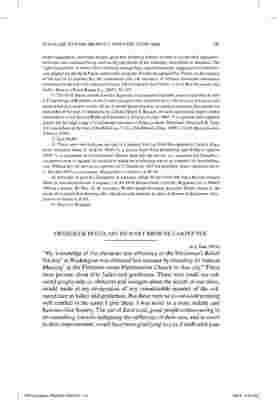Pages
1
CHARLES R. DOUGLASS TO FREDERICK DOUGLASS
City Point[, Va. ]1A village on the south bank of the James River near its confluence with the Appomattox River and across the James from Bermuda Hundred, City Point was captured from the Confederates in early May 1864 by General Benjamin Butler’s Army of the James, composed of the Tenth and Eighteenth Corps, the latter including Charles Douglass’s Fifth Massachusetts Cavalry Regiment. Although Butler’s offensive operations soon failed, City Point became a major supply depot and headquarters for Ulysses S. Grant during the siege of Petersburg. In the following month, the Fifth Massachusetts Cavalry was transferred from Butler’s command to Point Lookout, Maryland. William Glenn Robertson, Back Door to Richmond: The Bermuda Hundred Campaign, April—June 1864 (Newark, Del., 1987), 21-22, 32-33, 60-61, 250-51; Massachusetts Soldiers, 6:528. 31 May 1864.
DEAR FATHER
I received your letter with Lewis yesterday afternoon I was very much pleased to hear from home and to know if any were sick I hope that you will be about soon. It is pretty warm here at present and has been so for several days. Sunday we all had green peas for our dinners this morning I had chicken for breakfast our Company went out on picket yesterday afternoon, and Capt Wulff made a raid on an old farm house outside our picket lines and shot seven chickens one he sent to me I staid in from picket just as I am writing this there is heavy firing just above our picket line & expect to be called into line of battle every moment we have been fighting ever since our Reg[t]. came here I mean our forces. Genl. Martindale2The son of New York congressman Henry C. Martindale, John Henry Martindale (1815-81) graduated from West Point in 1835. He soon quit the U.S. Army to practice law, first in Batavia, New York, and after the early 1850s in Rochester. Commissioned a brigadier general in August 1861, Martindale served in the Peninsula Campaign in 1862. Promoted to major general after the Battle of Malvern Hill, he became military governor of the District of Columbia for the next two years. Martindale returned to the field to command the Eighteenth Corps of the Army of the Potomac in the summer of 1864, fighting at Cold Harbor and the siege of Petersburg. After resigning his commission on account of ill health in November 1864, Martindale returned to New York to practice law and served one term as the state’s attorney general, 1865-67. New York Times, 14 December 1881; Robertson, Back Door to Richmond, 110, 115, 233-34; Heidler and Heidler, Encyclopedia of the American Civil War, 3:1256-57. passed right by our camp day before yesterday with his whole division he is from Rochester a Brig. Gen has command of a division I
2
also saw Col. Fairchild3Born in Cazenovia, New York, Harrison Stiles Fairchild (1820-1901) worked as a bank teller and bookkeeper in Rochester before the Civil War. During the 1850s, he served as a captain in the Rochester Light Guard and then as colonel of the Fifty-fourth New York militia regiment. He commanded the Eighty-ninth New York Infantry Regiment throughout the war, although he also served as an acting brigade commander at times. He was cited for gallantry displayed at the Battle of Antietam in an attack commanded by General Ambrose Burnside and mustered out as a brevet brigadier general in August 1865. After the war, Fairchild returned to work in Rochester as a real estate agent and as a pension claims agent. New York Times, 26 January 1901; Rochester Daily Democrat and Chronicle, 26 January 1901. of the New York 89th4Recruited in the fall of 1861 by the War Democrat political leader Daniel S. Dickinson and thereafter nicknamed the Dickinson Guard, the Eighty-ninth New York Infantry Regiment was commanded by Colonel Harrison Stiles Fairchild. This regiment initially participated in Union army operations along the Atlantic Coast in North and South Carolina. It returned to the Army of the Potomac and fought in the Battles of Antietam and Fredericksburg. The Eighty-ninth again was dispatched to coastal operations and joined the siege of Charleston, South Carolina. The unit then returned to Virginia and fought in actions around Petersburg. Frederick Phisterer, New York in the War of the Rebellion, 3rd ed., 6 vols. (Albany, N.Y., 1912), 1:445-46. the firing I just mentioned on my first page is Butler bombarding Petersburg5After surprising the Confederates in a series of landings along the James River, Butler’s Army of the James advanced irresolutely in the direction of the railroad lines between Richmond and Petersburg. Delays by Grant’s Army of the Potomac in rendezvousing with Butler south of Richmond allowed Confederate forces under General P. G. T. Beauregard to block further advances by Butler’s small army from the Bermuda Hundred Peninsula toward the capital. At the time of this letter, Butler was attempting to shift his attacks southward and capture Petersburg, but his efforts were frustrated by Grant’s transfer of the Eighteenth Corp to the Army of the Potomac to participate in the disastrous Battle of Cold Harbor. Robertson, Back Door to Richmond, 234-40, 251-54; McPherson, Battle Cry of Freedom, 740; Boatner, Civil War Dictionary, 61, 162. which is about seven miles from this camp but the firing only seems to be about half mile distant the firing is very steady we have just sent three colored Regiments toward Petersburg the 22nd Penn 3rd Ohio and 4th Mary land6Charles Douglass mistakenly identifies these infantry regiments, none of which were African American units. these are the Regts that whipped Gen. Fitch. Lee7The nephew of Robert E. Lee, Fitzhugh Lee (1835-1905) graduated from West Point in 1856. He distinguished himself as a cavalry commander, rising steadily through the Confederate ranks until being made a major general following the Gettysburg Campaign. Lee turned to farming in Virginia after the war and successfully won a term as governor (1886-90). Grover Cleveland appointed Lee U.S. consul general in Havana, and William McKinley retained him there, where he handled the initial diplomatic response to the sinking of the American warship U.S.S. Maine. Lee returned to army duty as a major general during the Spanish-American War, although he saw no combat. He commanded American occupation forces in Cuba before retiring in 1901. Edward G. Longacre, Fitz Lee: A Military Biography of Major General Fitzhugh Lee, C.S.A. (Cambridge, Mass., 2005); DAB, 11:103-105; ANB, 13:366-68. up the river the other day at Fort Powhatan8On 24 May 1864, approximately 2,500 Confederate cavalrymen led by Major General Fitzhugh Lee attacked a force of 1,100 black Union army infantrymen defending Fort Pocahontas, commanded by Brigadier General Edward A. Wild. Located on the north bank of the James River at Wilson’s Wharf, in Charles City County, Virginia, Fort Pocahontas was intended to defend the supply lines for General Benjamin Butler’s Bermuda Hundred Campaign; it was under construction by Wild’s men at the time of the battle. The Confederates attacked Wild’s position after learning that he and his men had been freeing and recruiting local slaves. Supported by a Union gunboat, the black troops successfully held off Lee’s forces. This engagement marked the first significant victory of African American soldiers over Confederate troops in the Virginia theater. Charles Douglass mistakes this battle’s location as Fort Powhatan, which was several miles farther west and on the opposite bank of the James River. Gordon C. Rhea To the North Anna River: Grant and Lee, May 13-25, 1864 (Baton Rouge, La., 2000), 362-68; Robertson, Backdoor to Richmond, 21, 49, 58, 60-61, 231. I suppose you heard of it through the papers as they were under Gen. Wild9Born in Brookline, Massachusetts, Edward Augustus Wild (1825-91) graduated from Harvard in 1846 and began a career as a homeopathic physician. He practiced medicine in his hometown until 1855, when he joined the army of the Ottoman Empire as a surgeon during the Crimean War. When the Civil war began, Wild enlisted as an infantry rather than as a medical officer. He saw considerable action with the Army of the Potomac and rose through the ranks until he was promoted to brigadier general in April 1864. A fervent abolitionist, he recruited white officers such as Robert Gould Shaw for the new African American regiments. Wild commanded a brigade of black troops, including the Fifty-fifth Massachusetts and two North Carolina-raised regiments, in skirmishes in South Carolina. In early 1864, Wild’s “African Brigade” was transferred to Virginia, where it performed well in combat during the siege of Petersburg and elsewhere. The unit’s most conspicuous action was in the repulse of an attack by Fitzhugh Lee’s Confederate cavalry division at Wilson’s Wharf on 24 May 1864. After the war, Wild, having lost an arm during battle, supervised mining activities in western territories and South America. Frances H. Casstevens, Edward A. Wild and the African Brigade in the Civil War (Jefferson, N.C., 2005); James L. Bowen, Massachusetts in the War, 1861-1865 (Springfield, Mass., 1888), 1008-1010. at that time our boys are very anxious for a fight I think their wishes will be complied with shortly as for myself I am not over anxious but willing to meet the devils at any moment and take no prisoners remember Fort Pillow10On 12 April 1864, Confederate cavalry led by Nathan Bedford Forrest overran and captured Fort Pillow, a small, fortified Union army camp on the Mississippi River near Henning, Tennessee. African Americans made up about half of the 600-man garrison of Fort Pillow. Forrest’s 2,500 troops surrounded the fort and subjected its poorly trained defenders to heavy fire. After the Union commander refused to surrender, the Confederates assaulted the fort’s embankments and quickly drove the panicking Union soldiers back toward the riverbank. Although disputed by Confederate accounts of the engagement, historians largely agree that Southern soldiers refused to accept their opponents’ surrender and continued firing until nearly two-thirds of the defenders were killed or wounded. The higher proportion of white Union survivors among those captured strongly suggested that Confederates singled out the black Union soldiers for slaughter. Forrest abandoned Fort Pillow on the evening of the day of its capture, but the controversy over the massacre of African American combatants continued for the rest of the war and beyond. John Cimprich, Fort Pillow: A Civil War Massacre, and Public Memory (Baton Rouge, La., 2005), 70-107. will be the battle cry of the fifth Mass Cavalry11The Fifth Massachusetts Cavalry Regiment was mustered between January and May of 1864 at Camp Meigs in Readville, while Charles Douglass was stationed there. The African American unit never acted as a proper cavalry force; it served dismounted as an infantry regiment throughout the remainder of the war. Commanded by Colonel Henry S. Russell, the unit experienced major combat involvement in the Second Battle of Petersburg in Virginia in June 1864. The regiment later supplied guards for the large camp of Confederate prisoners at Point Lookout, Maryland. Frederick H. Dyer, A Compendium of the War of the Rebellion, 3 vols. (Des Moines, Iowa, 1908), 1:1240; Massachusetts Soldiers, 6:492. although I have been the first to take a prisoner last week when on picket I espied a man in grey clothes dodge behind a tree (Capt Wulff12Eric Wulff. had just left me) in a moment I had my piece to bear on him I was only about a dozen yards off once the old wild cat had got so near me without being per ceived I ordered him to step from behind the tree or I would knock a hole through him he stepped out I could see no gun I then ordered him to go on a head of me which he did very reluctantly as soon as he had passed in front of me I cocked my piece which went click: click he stopped stone still and wanted to know if I meant to murder him I spoke in a harsh tone for him to go on and if he stopped before I ordered him that I would shoot him he went on I took him to Capt. Wulff who was sitting under a tree Capt. Ordered me to search him which I did well making him st[r]ip off every rag for he was covered with them I found a revolver dirk knife $50 in reb money $13. in gold and some silver coin and green backs he proved to be the man that carried the land where we were picketed I have the the revolver that I took from him it is a pepper box. I also brought in [illegible] contrabands from a farm house. I have had the praise of bringing in the first prisoner, the firing is getting very heavy out front. Lew spoke of Capt Wulff shooting a man he did in Baltimore the way it happened is this he ordered all to fall in line which we did except Sergt Jackson13There were two Jacksons serving in Company I of the Fifth Massachusetts Cavalry Regiment: Corporal Amos F. Jackson (1840-?), a farmer from West Brookfield, and William Jackson (1839-?), a coachman from Dorchester. Neither man left the service as a sergeant, but Douglass’s comments seem to suggest the Jackson to whom he is referring was to be demoted for insubordination. William left the service as a private on 13 December 1864 for disability. Amos mustered out on 31 October 1865 as a ccorporal. Massachusetts Soldiers, 6:28-29. he staid out he was a little drunk but not drunk enough to not know what was right the Capt fell us in to tell us that he was agoing to let us go around and if we were insulted to go in with a hill and defend ourselves so turning around he saw Jackson out of the ranks he merly took him by the arm and told him to keep in the ranks when Jackson cursed him the Capt then ordered him to take off his stripes which he refused to do or to let any body else do he said if they took off his stripes that he would have to be shot first the Capt then said I will shoot you then and immediately drew his
3
revolver and shot at Jacksons head Jackson dodged his head and the ball passed through the heart of Albert White14Although he gave his occupation as a farmer, Albert White (1836-64) was a Boston residentwhen he was mustered into Company I of the Fifth Massachusetts Cavalry Regiment on 11 March 1864 as a private. By May 12, he was dead. While Charles Douglass describes White’s death as the result of an accidental shooting, the official records indicate he died of disease in Baltimore. Massachusetts Soldiers, 6:531. the man that H. O. Waggoner15Henry O. Wagoner. brought out of bondage no more at Present.
Your Affectionat, Son
CR DOUGLASS 1ST SERGT C.T[.]
ALS: General Correspondence File, reel 2, frames 32-34, FD Papers, DLC.
